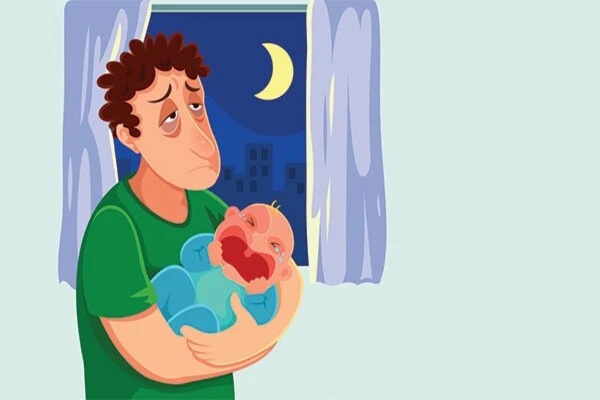Studies have shown that every one out of ten Dads have a high probability of suffering postpartum depression and anxiety.
Postpartum depression is a mental illness described as an episode of major depressive disorder occurring soon after the birth of a child. When it is most frequently observed among women, however recent studies have shown that men too struggle with paternal depression.
A study done in the US found that at least one out of ten potential fathers are susceptible to postpartum depression.
Read also: Men’s mental health is just as important
There are several symptoms associated with men that suffer from postpartum depression, among them:
- Irritability
Somehow, even the minor of things tick dads off in such a scenario. They get very angry easily, restrict their emotions, and have pent-up frustration that ends up exploding eventually in the vilest of ways.
Subscribe to Switch TV for more content
- Parental disconnect
Half the time, a father with postpartum depression tends to sideline himself from the child, the mother, or both. It could spring from a feeling of anxiety about how best to take care of the infant.

Factors that may contribute to fathers suffering from postpartum depression:
- Partner’s depression
When the father notices that the mom has withdrawn, sometimes it triggers them to follow.
- Feeling left out
Mothers are most likely to obsess over their babies than dads. When dads want to give their best and fully immerse themselves in the experience, sometimes they feel like it is not enough. This subjects them to anxiety.
Read also: Looking to grow your nails quickly? Try this!
Even though cases of postpartum depression in men are not very common, they have a huge impact on the general growth and well-being of the child. Studies show that kids whose fathers have depression are more likely to develop physical and mental problems as well. It also increases the risk of behavioral problems in preschool children.

Generally, men’s postpartum depression, just like in women causes poor family and marital relationships.
Read also: Have you experienced this? It’s probably a phobia
The stakes when it comes to the condition are high but the good news is, treatment is a good way to overcome it. Hospitals and paternal healthcare facilities are advised to incorporate screening for parents’ mental health during their prenatal visits.
Most importantly, families should support fathers during the process by constantly reassuring them that they are doing a great job at caregiving.
















